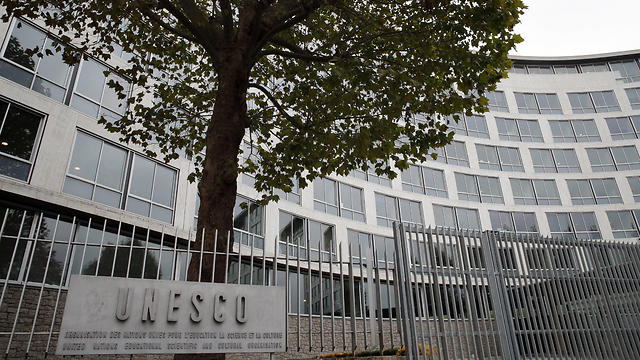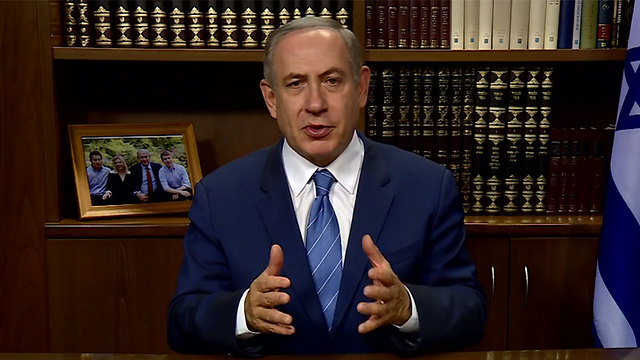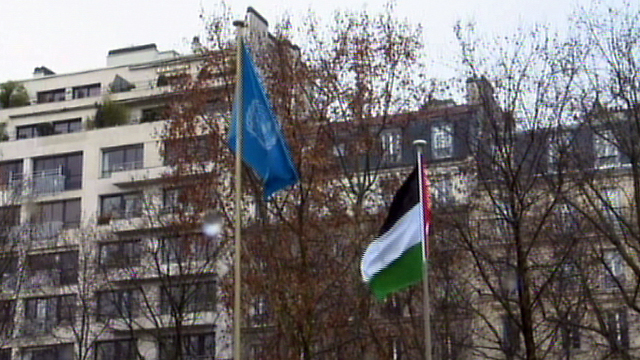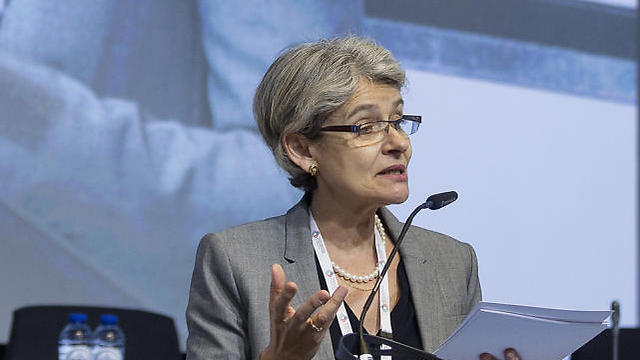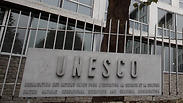
Resolutions and condemnations: The history of UNESCO against Israel
Israel has been a member of UNESCO for 68 years with a five-year hiatus after it was removed following excavations carried out on the Temple Mount; the UN Educational, Scientific and Cultural Organization's decision yesterday to declare the Cave of the Patriarchs a Palestinian heritage site is just one of many decisions against the Jewish state.
UNESCO's recent decision to declare the Cave of the Patriarchs a Palestinian World Heritage Site is only one in a long line of controversial decisions the organization has taken against Israel in the 72 years of its existence.
UNESCO, the United Nations Educational, Scientific and Cultural Organization, has 195 member states. Under the title "Building peace in the minds of men and women," the organization leads international cooperation in the fields of education, science and culture. Its stated goal is to contribute to peace and security.
UNESCO has a long history with Israel, which officially joined the organization in 1949 and was expelled in 1974 because of archaeological excavations it carried out on the Temple Mount which were seen as unacceptable by the UN.
Five years later, Israel returned to being a member of UNESCO after the United States threatened to stop its funding of the organization.
A History of confrontations
In 2010, the organization determined that Rachel's Tomb was a mosque and called upon the Israeli government to remove the site along with the Tomb of the Patriarchs from the list of national heritage sites.
Prime Minister Netanyahu said at the time, "The attempt to sever the Jewish people from its heritage is absurd. If the places where the fathers and mothers of the Jewish people were buried thousands of years ago are not part of the heritage of the Jewish people, then what is a heritage site?"
Following UNESCO's decision, Israel suspended its ties with the organization.
In October 2011, the Palestinian Authority was accepted as a full member of UNESCO by a majority of 107 countries, while 14 opposed and 52 abstained. In light of the vote, Israel announced that it would reconsider its membership in the organization, and even sped up settlement construction in Jerusalem, but none of this prevented the Palestinian flag from being raised at UNESCO headquarters in Paris two months later.
Three years later, the Palestinians failed to pass two resolutions condemning Israel for deliberately killing children during Operation Protective Edge in 2014 and attempting to take control of the Temple Mount and infringing the freedom of worship at the site, as there was little to no evidence for either claim.
Yesterday's decision concerning the Tomb of the Patriarchs was not the first to be adopted by UNESCO on the subject of the holy site.
In October 2015, the organization's executive committee condemned what it called "Israeli aggression" and "illegal measures against freedom of religion and access of Muslims to the Al-Aqsa Mosque."
In addition, the organization called for recognition of Rachel's tomb and the Tomb of the Patriarchs as part of Palestine and as sacred Islamic sites.
In 2016, the Paris Executive Council adopted a Palestinian proposal that questioned the Jewish connection to the Temple Mount and the Western Wall in Jerusalem. 24 countries supported the resolution, in which there is no mention of the Jewish connection to the holy sites, which they call the Al-Aqsa Mosque and Haram al-Sharif. Six states opposed, 26 abstained, and two representatives were absent.
Israel was defined in the resolution 15 times as "the occupying power."
UNESCO Director-General Irina Bokova and former UN Secretary-General Ban Ki-moon tried to quench the flames and made it clear that the Temple Mount was also sacred to Jews.
"The theater of absurdity continues," said Netanyahu in response at the time. "I decided to invite our ambassador to UNESCO to Israel for consultations and we will decide what to do, and what will be the continuation of our relations with this organization."
On the last Independence Day, the crisis between Israel and the organization came to a head, when on the very day the state was celebrating its independence, a vote was passed calling for the revocation of Israeli sovereignty over all of Jerusalem. The decision was passed with 22 countries supporting it, while 10 opposed, 22 abstained and three were absent.
Despite the outrageous decision, Israel declared a diplomatic achievement, as Netanyahu noted that after speaking with the leaders and foreign ministers about the vote, many of them changed their minds, as initially—just one year ago—32 of them supported it, but at the end only 22 voted to pass it.
Finally, the decision yesterday on the Tomb of the Patriarchs has already stirred up a storm, as UN Ambassador Nicky Hailey, speaking on behalf of the US, announced that it would once again reconsider their funding of the organization.










